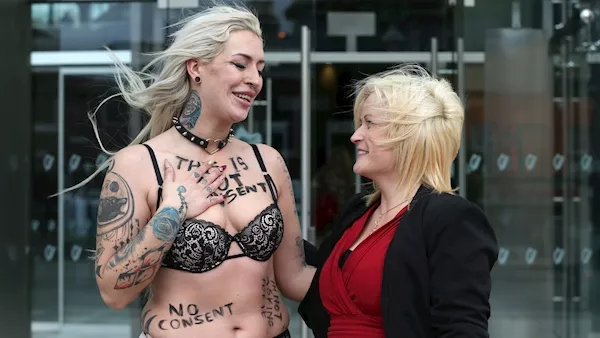The director of the Rape Crisis Network Ireland, Cliona Saidlear has said that there is space in the Irish legal system for protocols for the behaviour of lawyers in rape cases.
“It’s time to put manners on the system,” she told RTE’s Today with Sean O’Rourke show.
Ms Saidlear was responding to recommendations by retired Northern Ireland senior judge John Gillen in his preliminary review of how the law deals with serious sexual offences.
The review, which now goes out to consultation, was ordered in the wake of the controversy that was triggered after two Ireland and Ulster rugby internationals, Paddy Jackson and Stuart Olding, were acquitted of rape earlier this year.
The retired Court of Appeal judge’s report contains 16 key recommendations but, unlike the situation in the Republic, he does not propose that defendants in rape cases should be anonymous before or during trials.
Ms Saidlear also commented on the case of 37-year-old woman, Leona O’Callaghan, who waived anonymity on Monday so the man who raped her when she was 13 could be named.

This Is Not Consent protestor Stacie Ellen Murphy with Leona O’Callaghan.
Patrick O’Dea of Pike Avenue, Limerick, pleaded guilty on the second day of his trial at the Central Criminal Court to charges of sexual assault and rape on dates in 1994 and 1995.
The Rape Crisis Network director said that the Belfast rugby trial had highlighted the problem of allowing the public attend such cases (the victim was named on social media). There were no rules of engagement for the public, she said.
Having people make judgements and assessments all the way through the trial had been a problem.
The system of naming defendants had some advantages, she said as other victims might come forward. However, the system in the Republic also had merit, she added as there can be a focus on the details of the case, rather than the identity of the defendant.
Ms Saidlear agreed with an appeal by Leona O’Callaghan for a speedier process, better case management could remedy this problem, she said.






